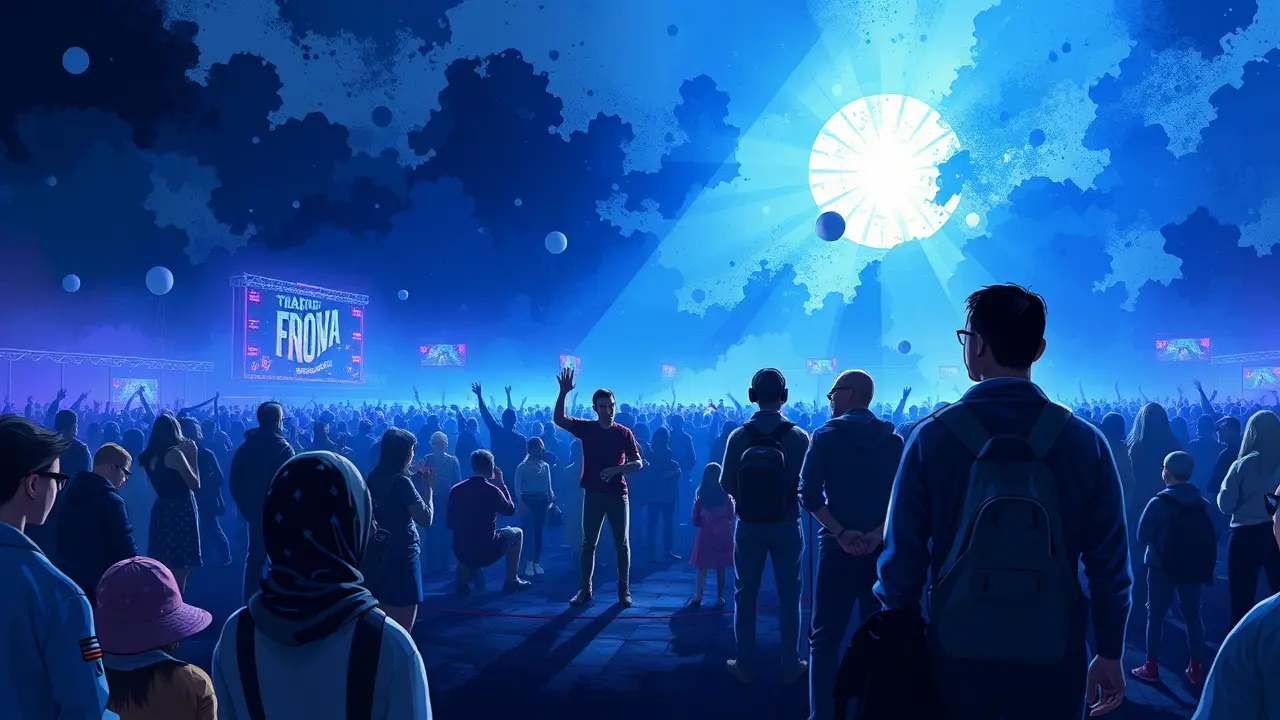Nova Festival Survivors Relieved After Hostage Rescue
The raw, unfiltered anguish of survival echoed through the Berlin exhibition space, a stark contrast to the city's usual hum, as Nova Music Festival survivors and victims' relatives gathered, their presence a living testament to the horrors of October 7, 2023. For these individuals, the recent successful rescue of hostages from Gaza wasn't just a headline scrolling across a Reuters feed; it was a seismic shift in their personal cosmos, a long-awaited fissure in the wall of their collective trauma.I spoke with them not as a detached observer, but as a reporter who feels the weight of these global crises in the pit of her stomach every morning, and their stories were not merely recollections but open wounds, pulsating with a mixture of profound relief and renewed grief. One survivor, his eyes holding a thousand-yard stare, described the festival grounds transforming in an instant from a haven of peace, of trance music and unity under the desert sky, into a killing field, a chaotic nightmare of gunfire and terror where the simple act of breathing felt like a rebellion.He spoke of the agonizing months since, a period defined by a dual captivity: the physical imprisonment of their friends and the psychological imprisonment of those left behind, trapped in a loop of helplessness and fury, their lives perpetually on pause. The rescue operation, therefore, was more than a military success; it was a restoration of agency, a validation of their unwavering, desperate hope.Yet, this relief is complex, layered with a sharp, empathetic understanding of the cost. As one woman, who lost her brother that day, whispered through tears, the joy of seeing familiar faces return is inextricably tangled with the crushing permanence of her own loss, a reminder that for every family made whole, others remain shattered, their tables forever set with an empty chair.This is the brutal arithmetic of such conflicts, where victory is never absolute, and healing is a fractured, non-linear journey. The emotional landscape here is one of precarious balance—jubilation for the rescued is immediately checked by a somber memorial for the murdered, a cycle that these survivors know all too well.Their relief is real, a palpable, physical unclenching of shoulders held tight for months, but it exists within a broader, ongoing humanitarian catastrophe in Gaza, a context they cannot and do not ignore, adding a layer of moral and emotional complexity to their personal liberation. They are now the reluctant ambassadors of a story too horrific to forget, using platforms like the Berlin exhibition to ensure the world sees the human faces behind the statistics, transforming their trauma into a powerful, urgent plea for a future where such rescues are no longer necessary. Their journey, from the blood-soaked fields of Re'im to this moment of qualified relief in a German gallery, is a searing chapter in an unfinished story, a testament to the resilience of the human spirit even when it is fractured to its very core.
Latest News
The charts are whispering what the true believers have felt in their bones for weeks—Dogecoin is carving out a bottom.
17 hours ago5 comments
The Institute for Fiscal Studies has thrown a stark warning onto Rachel Reeves's desk, urging the Chancellor to confront a potential £22 billion shortfall in
17 hours ago3 comments
Alright, let's break down this absolute heater of a performance from the Chicago Blackhawks, because if you missed this one, you missed a party.
18 hours ago5 comments
The ice was hot last night in the NHL, folks, serving up a slate of games that felt less like a regular season Tuesday and more like a playoff preview with a
18 hours ago3 comments
The XRP chart is painting a tantalizing picture for those with the stomach to withstand the relentless pressure from crypto's leviathans.
18 hours ago4 comments
It’s in the small shifts, the quiet recalibrations of a Thursday morning, where the most meaningful change often takes root.
18 hours ago4 comments
In a move that sent ripples of quiet confidence through the crypto ecosystem, blockchain intelligence firms tracked a monumental treasury allocation from
18 hours ago4 comments
In a move that would have drawn a nod of approval from historical figures like Churchill, who understood the delicate balance of power within democratic
18 hours ago2 comments
JA
Jamie Wilson123k21 hours ago
wow this is so heavy to read, can't even imagine what they've been through
0
JA
Jamie Larson123k21 hours ago
it's amazing what humans can build when they care, even when things seem impossibly dark this kind of resilience is a light for us all
0
LE
Lena Schmidt123k22 hours ago
it's heartbreaking how this same cycle of trauma and relief plays out in conflicts everywhere we see this pattern from the middle east to eastern europe and it never gets easier
0
JA
Jamie Wilson123k22 hours ago
this just hits so different when you hear the actual stories behind the news headlines, my heart aches for everyone involved
0
MA
Markus Weber123k1 day ago
This is the direction we must move. A clear, decisive result that proves hope is a strategy. The world needs more of this resolve
0
JA
Jamie Larson123k1 day ago
man this is just so heavy to read, my heart goes out to all of them tbh
0
JA
Jamie Wilson123k1 day ago
sounds like a powerful story but i'm curious how an exhibition can actually capture that level of trauma tbh feels a bit ambitious
0
JA
Jamie Lawson123k1 day ago
wow that's a heavy read tbh, the part about the empty chair really got me
0
JA
Jamie Lowe123k1 day ago
the emotional whiplash from this is something else tbh, what a world
0
MA
Maya Voss123k1 day ago
it's wild how a single event can shatter one reality and build another, all at once maybe the real rescue is just beginning, in the quiet spaces between the relief and the grief
0
